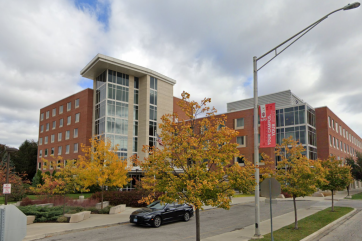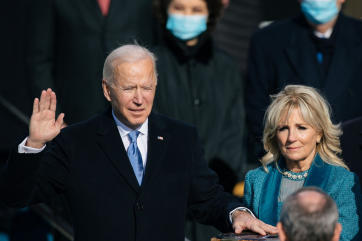Southern Accreditation Turmoil: Five Universities Placed on Probation for Financial and Governance Issues
By Joy LiwanagThe recent actions taken by the Commission on Colleges of the Southern Association of Colleges and Schools have sent shockwaves through the academic community, as four institutions find themselves on probation and a fifth continues to grapple with ongoing challenges.
The accreditation agency's December meeting shed light on a mix of financial troubles and governance issues that have prompted these stringent measures.

Probationary Measures
During its December meeting, the accrediting agency made critical decisions affecting the accreditation status of five institutions. Christian Brothers University, Guilford College, Interdenominational Theological Center, Saint Leo University, and Virginia Union University all received probationary status, each facing distinct issues.
1. Christian Brothers University
Placed on probation due to identified shortcomings in financial responsibility and board governance.
2. Guilford College
Facing probation for failure to comply with the accreditor's financial responsibility standards.
3. Interdenominational Theological Center
On probation due to non-compliance with standards related to board governance, financial responsibility, documentation, control of finances, and federal and state responsibilities.
4. Saint Leo University
Placed on probation for failure to meet the accreditor's financial responsibility standards.
5. Virginia Union University
Probationary status attributed to issues in board governance, financial responsibility, documentation, control of finances, and federal and state responsibilities.
The accrediting agency also decided to continue the probation of Hodges University, citing persistent issues related to financial responsibility and financial documentation.
READ ALSO: Trauma On Campus: College Counseling Centers Respond To Surge, Adapt Services For Students In Need
Challenges and Consequences
These probationary actions highlight the multifaceted challenges facing these institutions, ranging from financial mismanagement to governance deficiencies. The accreditation process is a crucial aspect of maintaining the quality and standards of higher education, and institutions that fall short can face significant consequences.
Probation can have far-reaching implications, impacting an institution's reputation, student enrollment, and even its ability to receive federal funding. For students and faculty at these institutions, this development raises concerns about the stability and long-term viability of their academic home.
Christian Brothers University's Financial and Governance Shortcomings
Christian Brothers University's placement on probation underscores concerns related to both financial responsibility and board governance. While specific details about the nature of these shortcomings are not explicitly outlined, the accreditation agency's decision signals a need for corrective measures to ensure the institution's financial stability and governance practices align with accreditation standards.
Guilford College's Struggle with Financial Responsibility Standards
Guilford College finds itself on probation due to a failure to comply with the accreditor's financial responsibility standards. This suggests a need for the college to address financial practices and demonstrate the fiscal responsibility required to meet accreditation benchmarks. The probationary status serves as a call to action for Guilford College to rectify these issues promptly.
The Interdenominational Theological Center faces a comprehensive set of challenges, encompassing board governance, financial responsibility, documentation, control of finances, and federal and state responsibilities. The breadth of issues cited indicates a need for a comprehensive review and overhaul of the institution's administrative and financial processes.
Universities on Probationary Status
Saint Leo University's probationary status is tied to its failure to comply with the accreditor's financial responsibility standards. This signals a need for the university to reassess its financial practices and make necessary adjustments to meet the required standards, ensuring the institution's long-term financial health.
Probation for Virginia Union University stems from identified shortcomings in board governance, financial responsibility, documentation, control of finances, and federal and state responsibilities. Addressing these multifaceted challenges will be crucial for the university to regain a favorable accreditation status.
Hodges University continues to grapple with financial responsibility and financial documentation issues, leading to the extension of its probationary status. This ongoing struggle underscores the complexities involved in addressing accreditation concerns and the need for sustained efforts to meet established standards.
The probationary status of these institutions serves as a stark reminder of the critical importance of financial responsibility and governance in maintaining accreditation. As these universities navigate the challenges ahead, the broader academic community will closely watch their responses and corrective actions. The consequences of probation are profound, affecting not only the institutions themselves but also the students, faculty, and stakeholders invested in the continued success of higher education.
RELATED ARTICLE: Higher Education Funding Surges: States Allocate $11.7 Billion More In 2024








